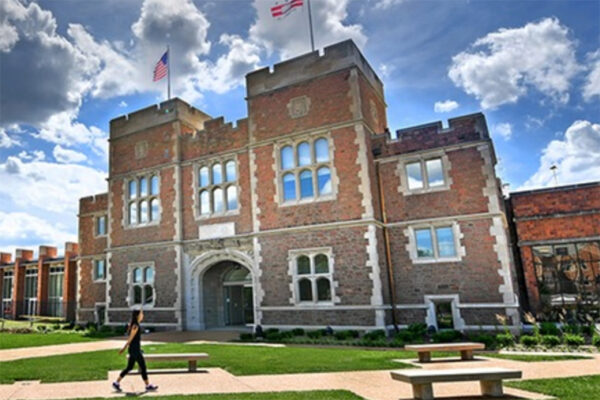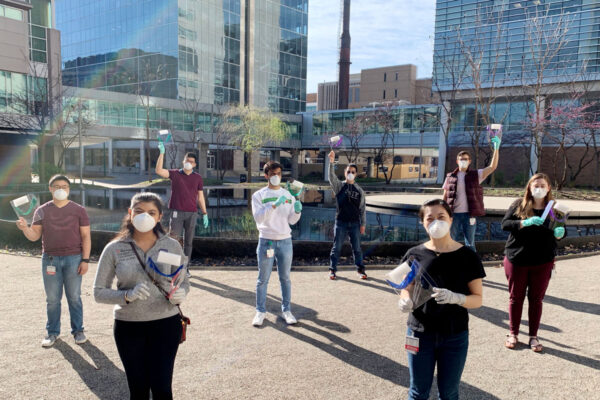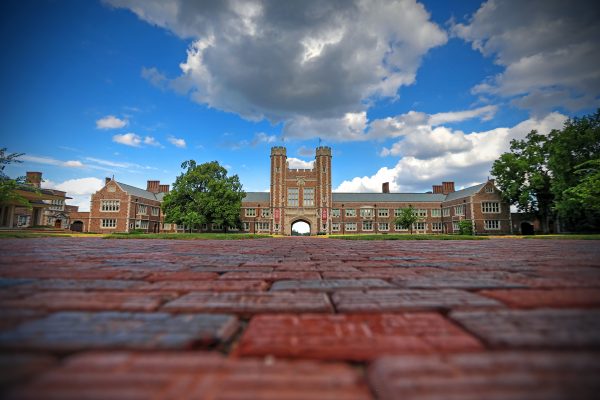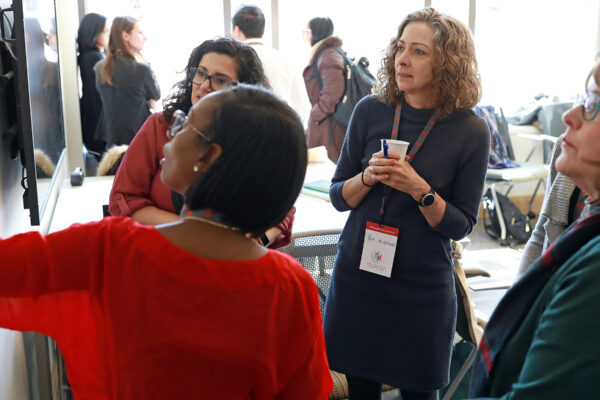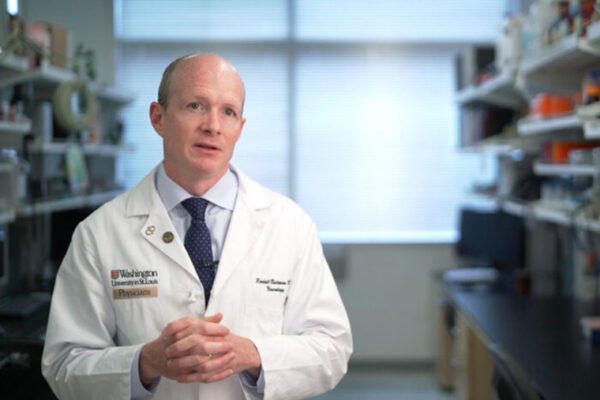Spilling ‘Boundaries’
Rob Morgan, in Arts & Sciences, shares the story of how he steered the Beyond Boundaries Program — in its first cohort in 2019-2020 — to roll with the challenges of COVID-19. Embracing resiliency and creativity, Morgan and the program pivoted, creating a podcast to bridge the digital divide.
Four steps to a healthy WashU community
This fall, each and every member of the Washington University community who will be on campus will be required to follow four steps — four public health measures that must be completed by students, faculty and staff individually, but will have an impact globally.
University announces cancellation of fall sports
Due to the continuing COVID-19 global pandemic, Washington University varsity athletic teams will not be competing during the 2020 fall sports season. “While the decision to cancel fall competitive schedules was not made easily, we remain committed to keeping the safety and well-being of our student-athletes and campus community front of mind,” said Anthony J. Azama, the John M. Schael Director of Athletics.
A spring like no other
The spring semester at Washington University was not supposed to end like this — with empty labs and remote classrooms; canceled traditions and idle walkways; scattered friends and electronic colleagues. But the coronavirus disease (COVID-19) changed everything. Here’s a look at the many ways Washington University responded in the first uncertain weeks of a new reality.
Medical Campus students mobilize to help health-care workers, community
As the novel coronavirus has accelerated its spread throughout the Midwest and across the U.S., scores of students on the Washington University Medical Campus have mobilized to support health-care workers and the St. Louis community in the fight against the global pandemic.
WashU entrepreneurs respond to the coronavirus
FUSE, our website for innovation and entrepreneurship, is highlighting examples of WashU faculty, alumni and students who are doing what they can to help and serve those directly affected by the COVID-19 pandemic.
Reaching students where they are
Campus life at Washington University in St. Louis has been upended in the wake of coronavirus, but the Habif Health and Wellness Center is doing everything it can to reach students and provide consultation and support.
Coronavirus alters Washington University history
In the wake of the global crisis set into motion by COVID-19, extraordinary actions were put into place involving almost every aspect of Washington University life, including remote learning, working — and living.
‘A single moment’ can change behavior
The sixth annual Day of Dialogue & Action took place on both the Danforth and Medical Campuses Feb. 18 and 19 — two full days of talks, panel discussions and workshops that challenged and inspired the more than 700 faculty, staff and students who participated.
Investigational drugs didn’t slow memory loss, cognitive decline in rare, inherited Alzheimer’s, initial analysis indicates
The School of Medicine led an international trial evaluating whether investigational drugs could slow memory loss and cognitive decline in a rare, inherited form of Alzheimer’s disease. The trial was conducted at 24 sites in Australia, Canada, France, Spain, the United Kingdom and the United States.
View More Stories


